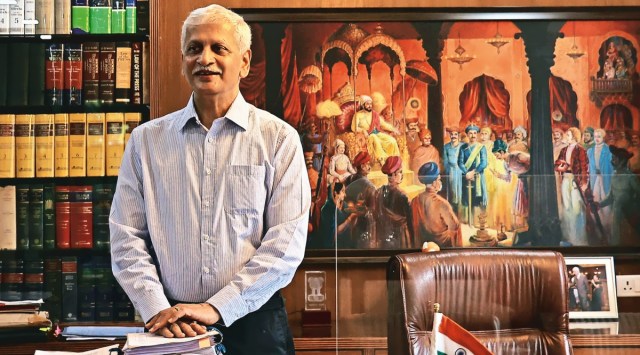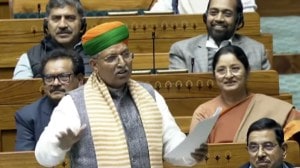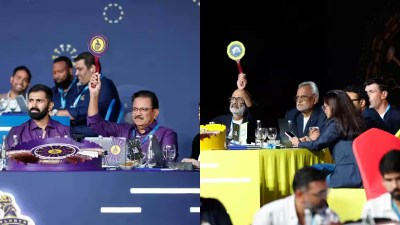
Asked about his priorities as CJI, Justice Lalit said: “It is an opportunity which has been given to me. I will make the most of it, in terms of laying down certain things which I consider to be the healthy practices. Of course, they won’t be (shaped only by) my individual views. Whatever I would like to put it down or lay down for the future generations to follow, we will take everybody in confidence…what shall be done hereafter at the level of the Chief Justice — naturally my successor. If you think in those terms, then 74 days is not a limitation.”
While he did not elaborate what these good practices could be, he did flag certain issues he said the apex court, as an institution, needs to pay attention to.
On the issue of bail, he said there are statutes like the NDPS Act and SC/ST Act which say that relief should not be readily granted and this weighs on the trial court which has to consider statutory compulsions and societal interest. He added that “the law” however “has to be clear, the law has to be consistent” and “that is something which, as the Supreme Court, we must lay down”.
Asked about the perception that the court gives the Executive the benefit of the doubt and doesn’t hear many key cases, Justice Lalit said that at the level of the bench, each judge decides the case at an individual level. “(On the subject that) some matters don’t get listed…that is something which, at the institutional level, we will have to find a solution to (in a way that) there won’t be any room for criticism.”
To that effect, he suggested the idea of having a Constitution bench sitting throughout the year to ensure that crucial matters are taken up without delay. He underlined that this would also make the best use of the formidable experience that judges bring to the Supreme Court.
Story continues below this ad
Responding to a query about concerns expressed by sections of the judiciary about increasing “personal attacks,” on social media, Justice Lalit struck a liberal note. “It (criticism) must be taken with a pinch of salt, so long as it is not a deliberate or a well-thought of action or a well-thought of agenda which is getting employed” and “unless and until it doesn’t transgress to that level, we must actually take it in our stride”.
On the question of judicial appointments, Justice Lalit said the collegium headed by current CJI N V Ramana and comprising him and Justice A M Khanwilkar (who retired recently) recommended 255 names without any kind of reservation or dissent.
He, however, suggested that given the nature of the deliberations, some kind of “opaqueness” may be necessary and preferable while discussing names of judges for elevation as views of the collegium members — besides those of the consultee judges — have to be elicited.
Asked about the demand from some quarters to increase the retirement age of judges of the SC, Justice Lalit was of the view that “it’s a matter to be considered by persons who are in charge of that particular issue, whether it’s this way or the other”.
Story continues below this ad
On criticism about judges taking up post-retirement jobs, Justice Lalit said that while he himself may not take up one, he didn’t think it’s wrong to do that. “It’s individual discretion. Nothing wrong in that”, he said, adding there are anyways some statutory enactments like Lokpal and NHRC that require a retired judge and not taking up the post would mean that these posts would remain vacant.
Referring to criticism of the misuse of PIL, he cited his own work as Amicus Curiae for 18 years in the T N Godavarman case (which ushered in laws for the protection of India’s forests) and said appointing an Amicus in PILs “will insulate” it “from any kind of criticism that this is motivated petition or a private interest petition or a publicity oriented petition”.










